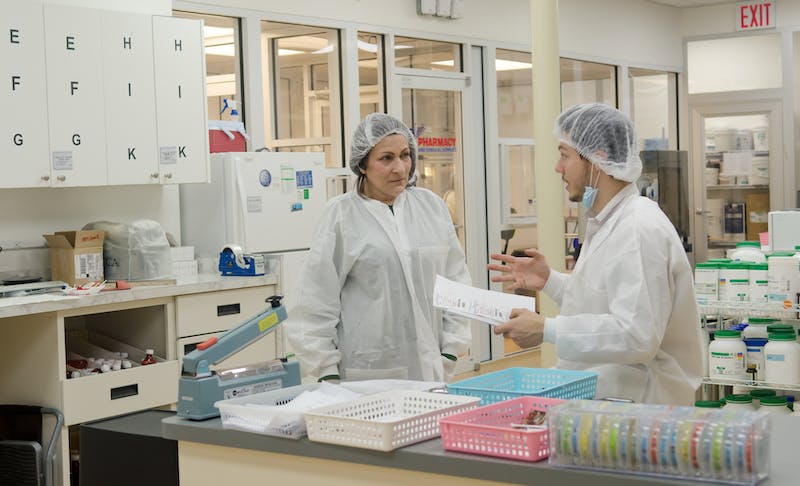



The need for packaging is growing rapidly, and the medical industry is no exception – in order to effectively transport, distribute, and store medical equipment and supplies, you must meet strict hygiene and sterility standards.
Krus is a company that specialises in producing antibacterial films and packaging to meet these needs.
Numerous customers have already used our products in the health and medical fields, so if you’re in need of a reliable supplier, we invite you to learn more about our comprehensive range of offerings.
Send Inquiry
Today, the packaging industry operates a wide range of plastics that can be processed into films and packaging. In addition to working with polyethylenes such as LDPE – the first polyethylene developed worldwide – we are now able to produce films that have antibacterial properties.
Krus currently works with the following materials:
LDPE, or low-density polyethylene, is a type of plastic that is less rigid than other plastics but still boasts impressive features such as high stretchability and cold resistance. It is also known for its excellent sliding friction.
Soft polyethylene, another name for LDPE, is easy to shape and form, making it a popular choice for many applications. In addition, LDPE is classified as non-toxic, making it a safe option for use in the medical industry.
MDPE, or mid-density polyethylene, is another member of the polyethylene family. Unlike LDPE, it is stiffer but more flexible than the third polyethylene in this group, HDPE.
MDPE has a matte surface and boasts high strength and scratch resistance, and it is also classified as non-toxic, making it suitable for packaging medical industry products.
In addition to MDPE and LDPE, Krus has successfully utilised CPP (cast polypropylene) and BOPP (biaxially-oriented polypropylene) to manufacture packaging and films for the medical industry. Both materials originate from the polyolefin family.
CPP is a partially crystalline thermoplastic that offers higher transparency, stiffness, and abrasion resistance than traditional PE film. BOPP film, on the other hand, is mechanically sturdy and renowned for its exceptional barrier properties, as well as high resistance to tearing, impact, and puncturing.
Not sure which material would be the best choice for your products? Our team is here to offer personal and non-binding consultations to help guide you in the right direction. With years of experience in the field, we are here to help. Don’t hesitate to reach out to us for guidance!
Do not hesitate to contact us for more information about the different films and to find out which product is the right one for your project!
Send InquiryAt Krus, we manufacture film foils on rolls, making them easy to use in your packaging machinery. We use materials like LDPE and MDPE to create products like flowpacks and doypacks for our customers.
We also offer antibacterial film foils that prevent the growth of bacteria and can be sterilised, which makes them perfect for the medical industry.
Contact us to learn more about our versatile range of film foils.
In addition to the film foils for further processing, we also produce finished packaging from LDPE, CPP, and BOPP for the medical industry. Our offer includes the following options:
Yes, we use flexographic printing to apply any design you want to your foils and packaging using eight high-quality Pantone® colours. Those prints can include everything, from usage information to product labels and company logos.
On top of that, we can also fully colour your order according to your needs. Contact us to learn more about our printing and colouring options.
At Krus, we customise our orders to fit the requirements of our customers. With that, the minimum order quantities depend on the type of packaging or foil you need.
We’d be happy to advise you personally on this, so don’t hesitate to contact us.
While we don’t actually produce doypacks and flowpacks ourselves, we can certainly supply you with the film needed to create them using your own packaging machinery.
Contact us to learn more about our film options for doypacks and flowpacks.
As you already know, plastics can charge when rubbed against another surface or object. However, this can be prevented by adding an antistatic agent to the granulate from which the films and packaging are produced.
Apart from that, we offer additives such as:
No, since our sheets and packaging are made of plastics, they can be disposed of in regular household waste – yellow bags, yellow bins, or anything else designated for plastic recycling.